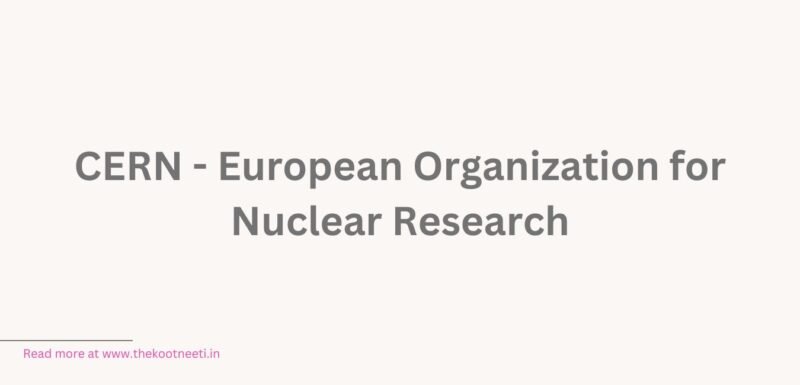CERN – European Organization for Nuclear Research

CERN (the European Organization for Nuclear Research) is an international organization based in Geneva, Switzerland that operates the world’s largest particle physics laboratory. CERN was founded in 1954 with the goal of advancing scientific knowledge and understanding of the fundamental structure of the universe.
CERN’s main facility is the Large Hadron Collider (LHC), a particle accelerator that collides protons at nearly the speed of light to study the basic building blocks of matter. The LHC has made a number of important discoveries, including the Higgs boson, a subatomic particle that helps explain why other particles have mass.
CERN is a research organization and does not have a specific product or service. Instead, it conducts basic research and makes its findings available to the scientific community and the general public. CERN is funded by its member states and observer states, which currently include 22 European countries and several other countries from around the world.
CERN and India
India has had a long association with CERN, the European Organization for Nuclear Research, and has been a member of the organization since 1954. India is also a member of the CERN Council, the highest decision-making body of the organization, and has contributed significantly to CERN’s research programs.
Indian scientists and engineers have played a key role in the construction and operation of CERN’s facilities, including the Large Hadron Collider (LHC). Indian researchers have also made important contributions to CERN’s research programs, particularly in the areas of particle physics and computing.
In addition to its research contributions, India has also benefited from its membership in CERN through the transfer of technology and the training of Indian scientists and engineers. The relationship between CERN and India has been mutually beneficial and has helped to strengthen scientific collaboration between the two countries.


















